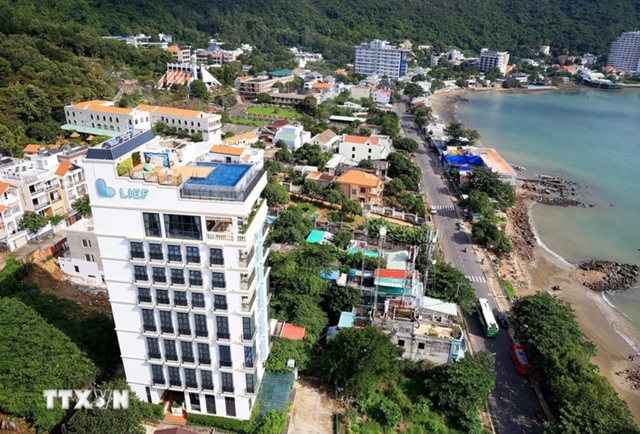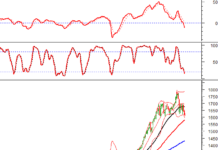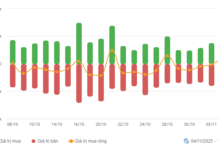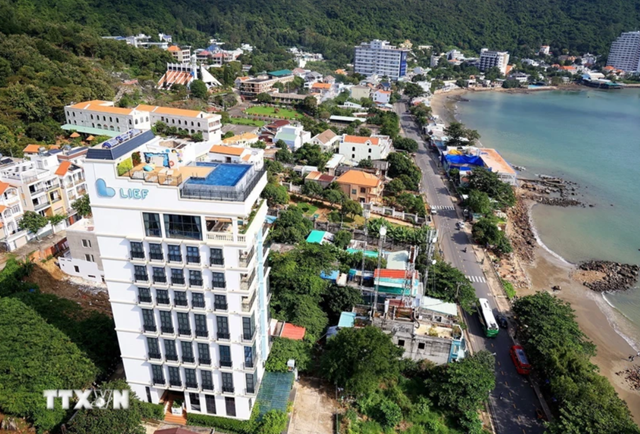
The vibrant hotel and resort scene along Tran Phu Street in Vung Tau city, Ba Ria-Vung Tau province, Vietnam. (Photo: Hong Dat/VNA) |
The Vietnamese vacation property market, particularly the condotel segment (condo-hotels), has faced challenges due to issues with project development quality, sustainability, and a lack of innovation. While foreign investors recognize the country’s potential, they are cautious due to various barriers and complex regulations surrounding project development.
Mauro Gasparotti, Director of Savills Hotels Asia Pacific, notes that investors tend to seek operational assets, especially quality hotel and resort projects in the 5-star segment within urban centers such as Ho Chi Minh City and Hanoi. However, these assets are often scarce and not readily available for transfer.
Meanwhile, the condotel market has caused concerns for investors, impacting the overall industry. This segment has experienced low liquidity, almost freezing in some areas, making once-popular products less desirable.
Savills experts suggest that markets like Vietnam, and some other Southeast Asian countries, have gone through similar phases of rapid condotel development. For instance, Bali, Indonesia, experienced a boom in 2008, and now the market has shifted towards slower but higher-quality growth. Each market goes through cycles, and Vietnam faces more challenges compared to Thailand and Indonesia.
During the peak period from 2016 to 2019, Vietnam witnessed an average of 12,000 condotel units launched annually. Besides the significant supply, developers competed by offering attractive profit commitment terms without thoroughly considering overall operational results.
A notable example is the rapid development of condotels in Phu Quoc in recent years. While Phu Quoc has the potential to become an international destination, most of the current supply focuses on providing rooms without enhancing the customer experience. There is a need for a diverse range of accommodation options, such as well-designed hotels and true luxury resorts.
According to Mauro Gasparotti, choosing the right model and product that aligns with market conditions and customer demands is crucial for project success. For instance, in Phu Quoc, developers should carefully consider the shophouse model as the market already has an oversupply of such products, many of which remain unoccupied.
“A poorly planned and executed product will not perform well, regardless of the market. It’s not just Vietnam that has faced condotel issues; some projects in Bali and Hua Hin have also experienced similar ‘disasters’ due to a lack of careful planning and development,” Mauro Gasparotti explains.
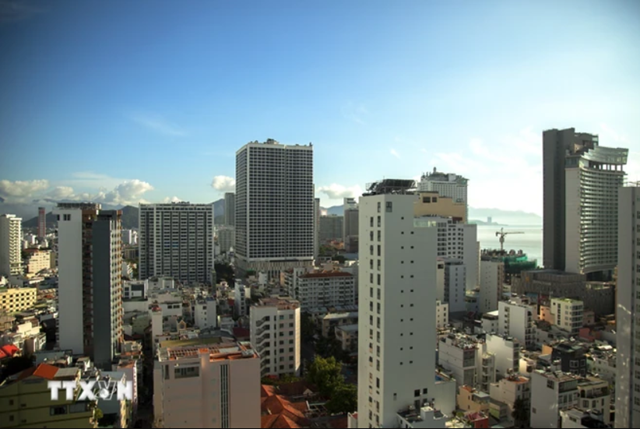
The bustling city center of Nha Trang, Khanh Hoa province, with its high-rise hotels. (Photo: Hong Dat/VNA) |
However, there have been successful condotel projects in Vietnam, such as Hyatt Regency Danang and Melia Ho Tram. These projects share common traits, including thoughtful planning, quality construction, and efficient management, delivering value to investors and owners.
Additionally, the experts recommend improving infrastructure as a crucial factor in boosting domestic tourism. A prime example is Phan Thiet, which has benefited from the recently completed highway, attracting more domestic tourists, especially from Ho Chi Minh City, as travel time has been reduced to just 2-3 hours.
To enhance the appeal of vacation properties and attract investors, Vietnam needs to focus on infrastructure development and diversifying tourism products, paying close attention to enhancing the overall experience and amenities for visitors.
Thu Hang
